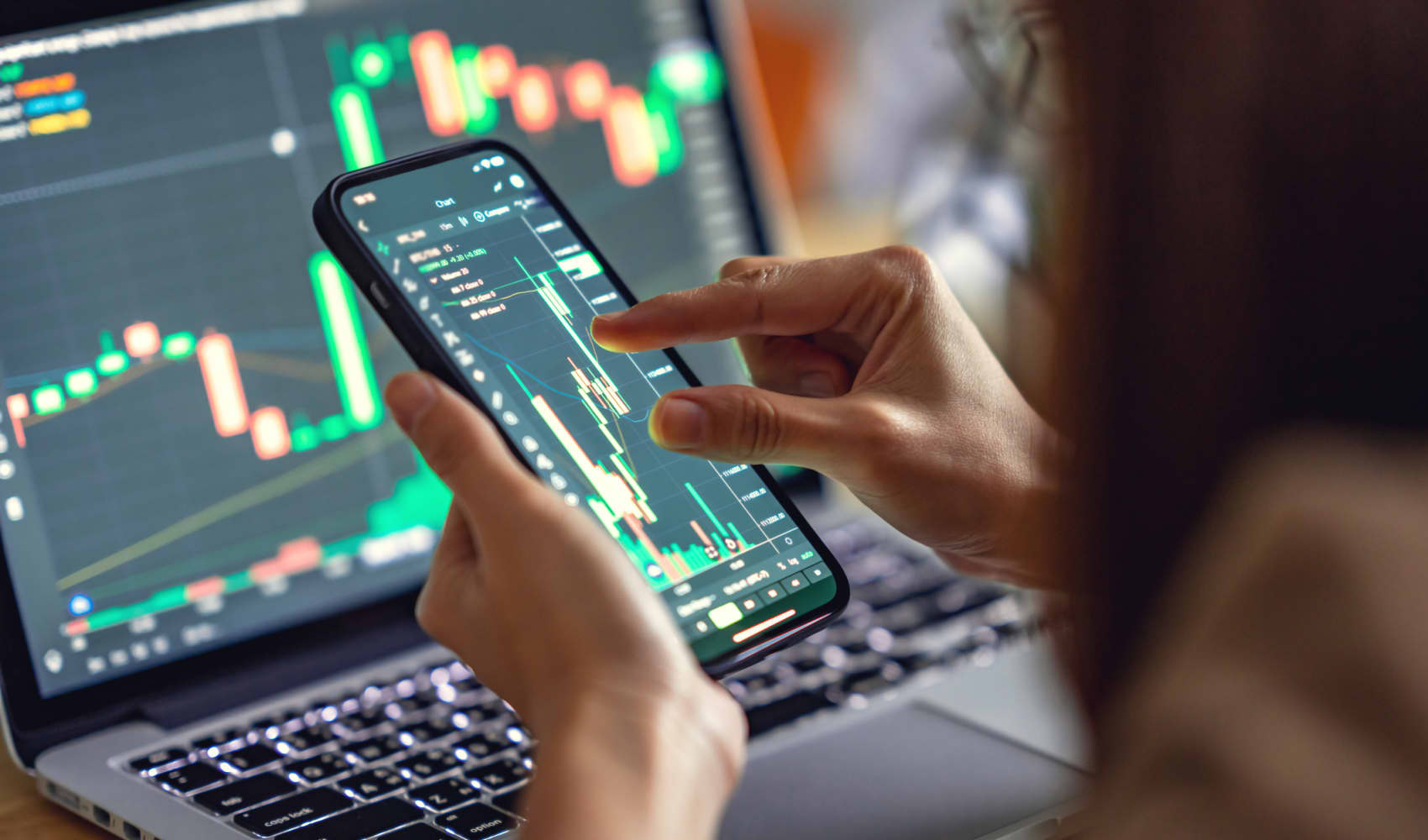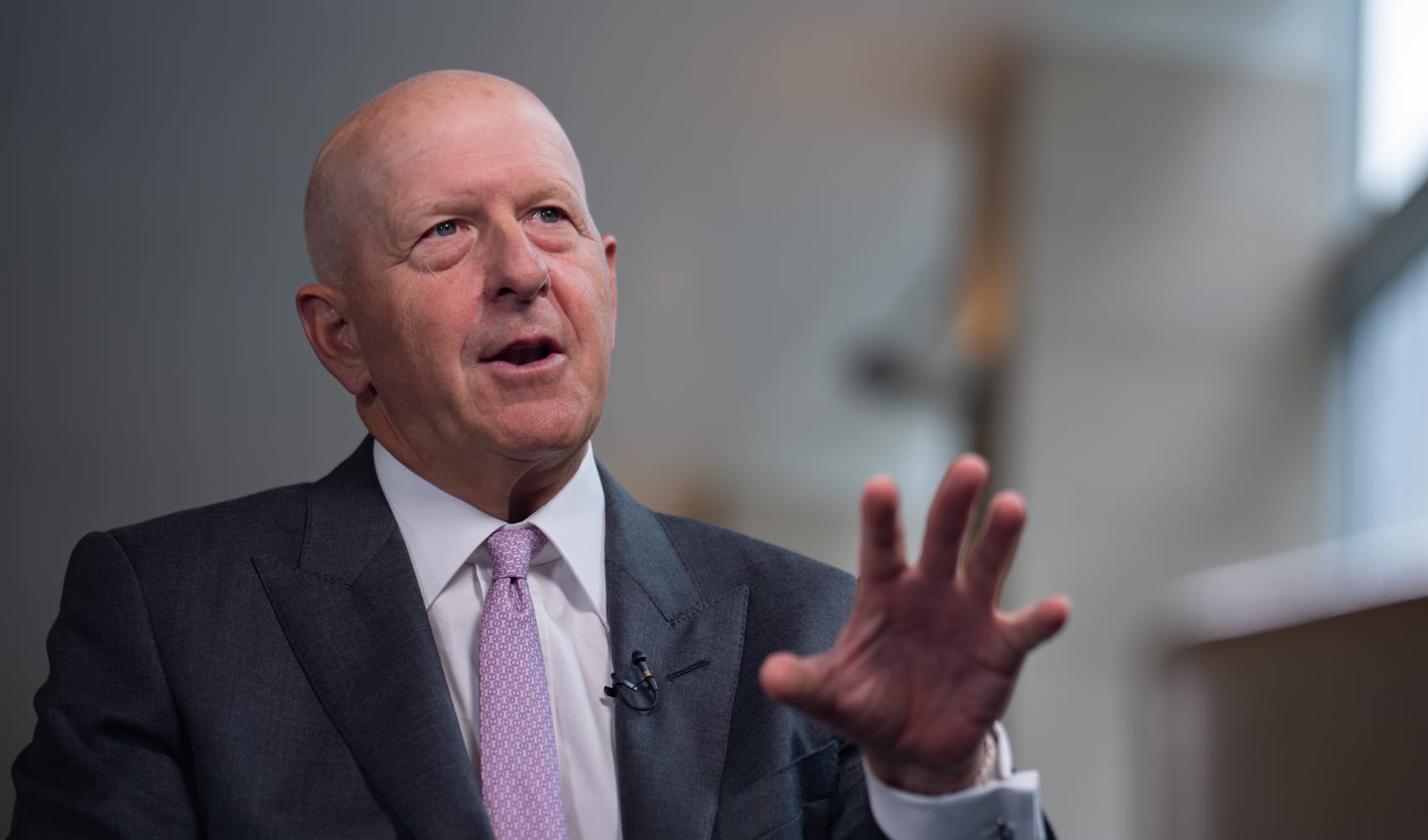
This was CNBC's live blog covering European markets.
LONDON — European stocks closed higher on Wednesday in their best performance for more than nine months, as global markets continued to shake off the recent rout.
The pan-European Stoxx 600 ended the session up 1.56%, its strongest session performance since Nov. 2, 2023, according to LSEG data. Banks clawed back recent steep losses to gain 3%, while financial services added 2.36%.
The Hurricane season is on. Our meteorologists are ready. Sign up for the NBC 6 Weather newsletter to get the latest forecast in your inbox.
Global stocks have whipsawed so far in August, tumbling across the first three sessions before returning to a positive trajectory on Tuesday and Wednesday.
Asia-Pacific markets kicked the session off on a positive note as Japan's Nikkei posted its best day since October 2008.
U.S. markets later joined the rally, with the tech-heavy Nasdaq Composite gaining 1.4%.
Money Report
Europe stocks close higher
Europe's Stoxx 600 index closed 1.56% higher on Wednesday, its best single-session performance for more than nine months.
France's CAC 40 leapt 1.9%, the U.K.'s FTSE 100 was up 1.75% and Germany's DAX was 1.47% higher.
— Jenni Reid
Bank stocks climb
European banks traded more than 3% higher Wednesday afternoon, regaining some ground after a run of five sharply negative sessions.
Banking stocks have been shaken this month, both by the global downturn in equities and the prospect of lower interest rates, along with a mixed earnings season in which the likes of HSBC and Standard Chartered shone as Deutsche Bank fell to a net loss.
Sector gains came despite Germany's Commerzbank sliding 3.7%, even as it reported net profit for the second quarter ahead of consensus expectations.
— Jenni Reid
Yen falls against the dollar
The Japanese yen depreciated 2.04% at 147.28 per U.S. dollar Wednesday morning.
The yen is now down from its seven-month high of 141.675 from Monday, but is still up nearly 2% in August. Wednesday's fall against puts the yen on pace for its worst day against the dollar since Jun. 17, 2022, when it fell 2.09% against the dollar.
The Currency Shares Yen ETF (FXY) declined 1.75% for its largest daily fall since Feb. 3, 2023 when it lost 1.8%.
— Hakyung Kim, Gina Francolla
U.S. stocks open in the green on Wednesday
U.S. stocks began Wednesday's trading session in positive territory.
The S&P 500 advanced 1.1%, while the Nasdaq Composite gained 1.7%. The Dow Jones Industrial Average jumped 256 points, or 0.65.
— Hakyung Kim
Economy still on track for a soft landing, says UBS
Despite some weaker-than-expected economic data in recent weeks and market volatility sparking fears of a recession, UBS says the U.S. economy is still on pace for a soft landing.
Corporate profit margins remain strong, and consumer spending is normalizing from high levels, not deteriorating, the firm added. Solita Marcelli, chief investment officer Americas, also noted that earnings for S&P 500 companies are likely to grow by double-digit percentages this year.
To be sure, Marcelli said in a Wednesday note that "While the breadth of earnings beats is in line with historical averages, the magnitude of the beats is a bit below normal."
— Hakyung Kim
'We would feel comfortable even if there are more rate cuts,' says Commerzbank CFO
Commerzbank CFO Bettina Orlopp says the bank is in a good position even if there are more rate cuts from the ECB.
Red Sea disruption to continue to end of year and lead to higher freight costs, Maersk CEO says
Container ship diversions around the southern coast of Africa due to tensions in the Red Sea are "entrenched" and expected to continue at least until the end of the year, Maersk CEO Vincent Clerc said Wednesday.
"That, of course, requires more capacity, more ships in order to move global trade around the world, and that has created some shortages here in the second quarter and in the third quarter that we're dealing with at the moment," Clerc told CNBC's "Squawk Box Europe."
"That means, in the short term, higher cost, and we have had to take on significant cost as a result of this, both in terms of needing more ships and needing also more containers to do the job that is expected of us."
If the company has to continue to sail the longer Cape of Good Hope route to connect Europe and the U.S. east coast with Asia, Maersk will see "significant inflation" in its cost base, which it will "need to pass on to customers," Clerc said.
Maersk on Wednesday reported lower year-on-year revenue in the second quarter and across the first half of the year. It also posted second-quarter underlying profit of $623 million, a drop compared to the $1.35 billion reported in the same period last year.
Container demand has been more robust than expected but is expected to cool in the coming quarters, Clerc said.
Maersk shares were 1.8% lower at 11:33 a.m. in London.
— Jenni Reid
Puma shares tumble 11%
Puma shares tumbled over 11% on Wednesday after the sportswear company announced its second-quarter earnings and narrowed its outlook for earnings before interest and tax for the full year.
At 8:46 a.m. London time, shares were 11.1% lower.
The company now expects EBIT to come in between 620 million euros and 670 million euros ($677 million and $732 million), down from the previous estimate of 620 million euros to 700 million euros.
Puma cited "the external factors of higher freight costs, changing duties and continued muted consumer sentiment, especially in China," as factors behind the change.
Second-quarter financial results were in line with expectations, the company said.
— Sophie Kiderlin
Shares of Wegovy maker Novo Nordisk slide after earnings miss
Novo Nordisk shares pulled back on Wednesday after the Wegovy maker posted weaker-than-expected net profit in the second quarter and trimmed its operating profit outlook.
Shares fell close to 7% as markets opened and were last down 4.5% at 8:20 a.m. London time.
The pharmaceutical giant said its net profit came in at 20.05 billion Danish kroner ($2.93 billion) in the three months to the end of June. A LSEG aggregate forecast had projected the figure would come in at 20.9 billion Danish kroner.
Novo Nordisk also trimmed its operating profit outlook for full-year 2024, saying growth was now anticipated to come in between 20% and 28%, rather than the previously expected 22% to 30% range.
European markets open higher
European markets opened higher on Wednesday, with the pan-European Euro Stoxx 600 adding 0.37% as of 8:23 a.m. London time.
Most sectors were last trading in the green. Banks rose 1.17%, while healthcare stocks shed 0.47%.
Bourses across the region also picked up, with the U.K.'s FTSE 100 adding 0.57%, Germany's DAX rising 0.27% and France's CAC 40 gaining 0.46%.
— Sophie Kiderlin
What to look out for in Europe today
European stocks are expected to rebound at the open on Wednesday. Here are the opening calls:
The U.K.'s FTSE index is expected to open 102 points higher at 8,120, Germany's DAX up 208 points at 17,526, France's CAC 40 up 104 points at 7,220 and Italy's FTSE MIB up 437 points at 31,670, according to data from IG.
On Wednesday, earnings are expected from Maersk, Novo Nordisk, Commerzbank, Siemens Energy, Continental, Puma, Illimity, Ahold Delhaize, ABN AMRO, Legal & General, Glencore and WPP.
European data releases include the U.K.'s Halifax House Price Index and German industrial production and trade balance figures.
— Holly Ellyatt
Bank of Japan deputy governor says central bank won't raise rates while markets are unstable

The Bank of Japan won't raise rates while markets are volatile, deputy governor Uchida Shinichi said in a speech Wednesday.
Japanese markets have whipsawed this week, seeing both their worst sell-off since the 1987 Black Monday crash as well as the best day since October 2008.
Uchida noted that unlike Europe or the United States, "Japan's economy is not in a situation where the Bank may fall behind the curve if it does not raise the policy interest rate at a certain pace."
"Therefore, the Bank will not raise its policy interest rate when financial and capital markets are unstable," he said.
— Christine Wang
Futures rebound as Asian stocks rise
U.S. stock futures reversed to trade higher as Asian stocks rose in morning trading.
Dow futures rose 219 points or 0.56% while S&P 500 futures rose 0.67%. Nasdaq 100 futures jumped 0.97%.
The benchmark Nikkei 225 in Japan rose 2%, while the broad-based Topix jumped 3%. The Japanese yen weakened against the dollar, trading around 146.
— Christine Wang






